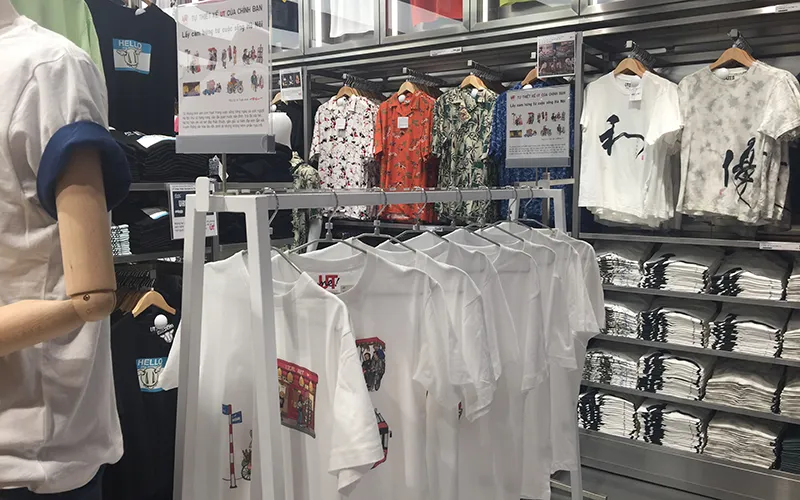Covid-19 puts Vietnamese fashion retailers to the test
Vietnamese large fashion houses may suffer more heavily than small ones if Covid-19 lasts more than six months.
Similar to the logistics and tourism industries, many enterprises in the textiles and garments industry are facing difficulties and bearing heavy losses as the new coronavirus epidemic is striking hard their operations in domestic and overseas markets.
| Illustrative photo |
Looking at garment exports, Nguyen Cong Minh, CEO of Denmoz Corporation, specializing in R&D, and providing solutions in local and foreign fashion markets, told Hanoitimes that the epidemic outbreak last November in China coincided with the production for spring-summer season and most of the materials were fully imported.
However, as their clients in foreign markets have been hit by the epidemic, they will ask for certain support from vendors. “As such, the customers are requesting deferred payment or discount,” he said and adding that even the shipments about to be sent may result in cancellation.
At present, the garment factories are concentrating on production for autumn and winter season orders, however, the manufacturing process is not running at full gear as the end of the epidemic is uncertain. In addition, the Chinese suppliers’ production will take time to be resumed. Garment businesses are expecting tough time ahead if the epidemic lasts until the second quarter in Asia, and together with its spread in European countries, “the damage could be enormous,” Minh predicted.
For Garment 10 Corporation JSC, its revenue in the first two months is estimated to have dropped 10% compared to the plan and the company’s input stock only meets production demand till the end of this month.
Sales in foreign markets are tough but enterprises like H&M, Zara, Canifa, Ivy Moda, Vietbrother, M2, Blue Exchange are also facing problems right in Vietnam. “Revenues of those retailers will be reduced about 40-50%,” Minh said. “Normally the fashion market after Tet holiday is very bleak, coupled with the epidemic, fashion at this time is not an interest of the Vietnamese consumers. These businesses are being hit severely.”
Meanwhile, fashion retailers that have a good online system are better than those that sell primarily in physical stores as the customers avoid or reduce their visits to brick-and-mortar stores due to the epidemic, Minh said.
| Inside a Uniqlo store in Hanoi. Photo: Nhat Minh |
Other fashion brands seeing a drop of about 20% in revenue are those that are small in size and have low price positioning. Le Thanh Van, founder/CEO of Gumac, owning 80 stores after 4 years of operation, told Hanoitimes that their revenue will fall 25% because the Covid-19 disease causes insufficient material supply for April-May. However, the loss is expected to be insignificant thanks to the availability of products produced before Tet holiday.
“We are looking for alternative raw material providers to the Chinese market. India is a good choice at the moment though the price will be higher,” Lam said. “Although the whole economic sector was affected by the epidemic, we will go on with our plans to expand the system in the third and fourth quarters of this year.”
Gumac targets to double its revenue in 2020, of which online revenue accounts for about 40%, higher than the 5% average portfolio of the whole fashion market.
Similar to Gumac’s stores, another fashion retailer, Hnoss, will cushion the effects of the epidemic thanks to their anticipation. “The material supply is ensured until the end of May,” Co Hue Anh, founder/CEO of Hnoss told Hanoitimes, and revealed that they are finding another input supply to replace the source from China.
From an expert point of view, Minh said that the fashion retailers in general are being hit hard not only because of the epidemic but also because of their business model. “A strategy of focusing on distribution expansion is not right if they don’t invest in building a database of customers, standardizing clothing size system and speed up applying high technology,” he added.
Those, who succeed in the market, will focus more on an omni-channel strategy than offline due to the changing behavior of Vietnamese shoppers, and increased ownership of smartphones, laptops, and tablet devices, and the readiness of the market, Minh stressed.











